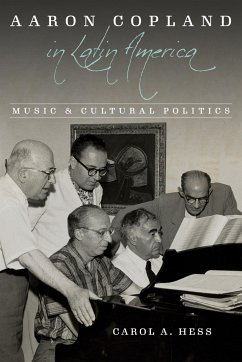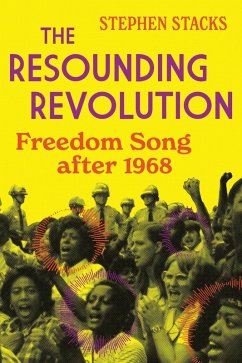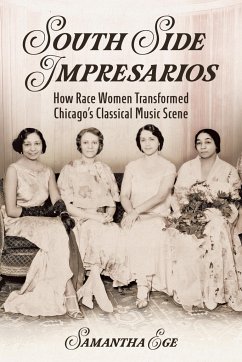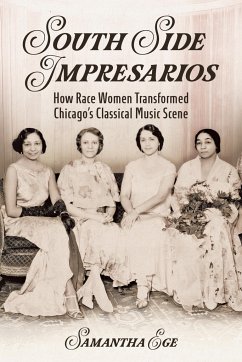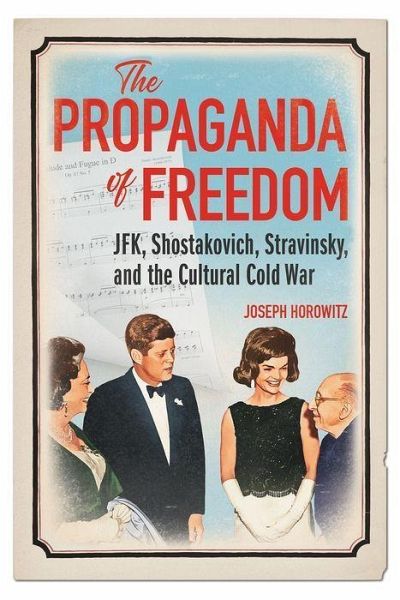
The Propaganda of Freedom
Jfk, Shostakovich, Stravinsky, and the Cultural Cold War

PAYBACK Punkte
22 °P sammeln!
"Eloquently extolled by President John F. Kennedy, the idea that only artists in free societies can produce great art became a bedrock assumption of the Cold War. That this conviction defied centuries of historical evidence--to say nothing of achievements within the Soviet Union--failed to impact impregnable cultural Cold War doctrine. Horowitz shows how the efforts of the CIA-funded Congress for Cultural Freedom were distorted by an anti-totalitarian "psychology of exile" traceable to its secretary general, the displaced Russian aristocrat/composer Nicolas Nabokov, and to Nabokov's hero Igor ...
"Eloquently extolled by President John F. Kennedy, the idea that only artists in free societies can produce great art became a bedrock assumption of the Cold War. That this conviction defied centuries of historical evidence--to say nothing of achievements within the Soviet Union--failed to impact impregnable cultural Cold War doctrine. Horowitz shows how the efforts of the CIA-funded Congress for Cultural Freedom were distorted by an anti-totalitarian "psychology of exile" traceable to its secretary general, the displaced Russian aristocrat/composer Nicolas Nabokov, and to Nabokov's hero Igor Stravinsky. In counterpoint, Horowitz investigates personal, social, and political factors that actually shape the creative act. He focuses on Stravinsky, who in Los Angeles experienced a "freedom not to matter," and Dmitri Shostakovich, who was both victim and beneficiary of Soviet cultural policies. He also takes a fresh look at cultural exchange and explores paradoxical similarities and differences framing the popularization of classical music in the Soviet Union and the United States. In closing, he assesses the Kennedy administration's arts advocacy initiatives and their pertinence to today's fraught American national identity. Challenging long-entrenched myths, this book newly explores the tangled relationship between the ideology of freedom and ideals of cultural achievement"--




